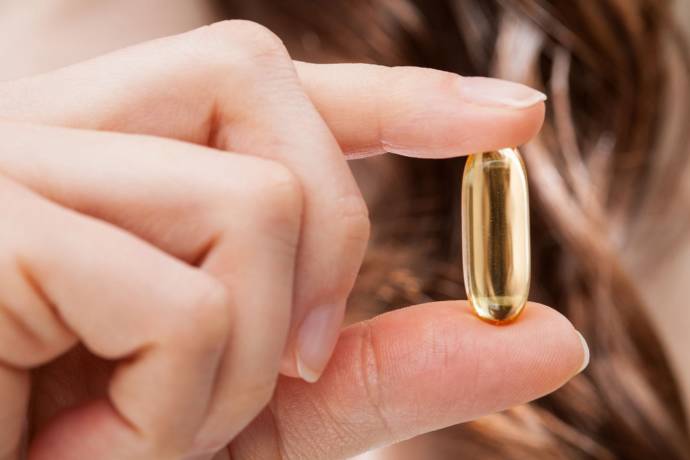Biotin is a member of Vitamin B-complex group and also known as Vitamin &, Vitamin H or beauty vitamin. Biotin is essential for the metabolism of the food we eat and helps to convert it to energy by activating various enzymes.
Biotin is received by the body through food and from gut bacteria. Biotin deficiency is rare, but when happens, may lead to various health issues.
It may lead to dermatitis, brittle nails poor hair health, eczema, lethargy and fatigue, insomnia, dry eyes, neurological disorders such as seizures and multiple sclerosis and hallucinations. Biotin-rich foods include salmon, almonds, mushroom, oats, cooked beef liver and sweet potato.
Biotin
Biotin is also known as Vitamin H or beauty vitamin, as it plays an important role in maintaining healthy hairs, nails, and skin. The primary role of biotin is to convert food into energy. It acts as a coenzyme in various metabolic reactions. Biotin is also helpful in maintaining the blood sugar level.
The deficiency of biotin is rare due to the fact that it is synthesized by the gut bacteria. Excess biotin is not stored in the body due to its water-soluble property. Biotin plays an important role in fatty acid synthesis and gluconeogenesis. It also activates the enzymes responsible for amino acid metabolism.
Benefits of Biotin
- Metabolism: Biotin acts as a coenzyme in various biological reactions related to metabolism. Biotin plays an important role in energy production and takes an active role in the metabolism of carbohydrates, fats, and proteins.
- Nails: Biotin supplementation improves the health of nails. It helps in improving the supply of protein to nails thereby improving the strength and reducing the cracking of nails.
- Hairs: People suffering from poor hair health are generally deficit in biotin. Thus, biotin supplementation increases the strength of hair and reduced hair loss. Biotin helps increase in the formation of keratin, which is required for healthy hair.
- Skin: As biotin is related to fatty acid metabolism, it helps in rejuvenating the skin cells and helps to enhance skin glow. Further, it helps to regenerate the skin cells and also helps reducing skin rashes.
- Pregnancy: Recommended quantity of biotin during pregnancy helps promote healthy growth of the baby. The biotin supplementation during pregnancy results in a baby that is less prone to skin rash, eczema or acne.
- Diabetes: Some studies have concluded that supplementation of biotin helps to reduce the blood sugar levels in patients with diabetes. Further, it also helps to reduce diabetic complications such as diabetic neuropathy.
- Nervous system: Biotin is helpful in various neurological disorders such as multiple sclerosis and epilepsy. Further, it is the vitamin essential for energy synthesis, which is a prerequisite for optimum nerve functioning.
- Eyes: Biotin increases the lacrimal secretion of eyes and keeps the eyes moist. It reduces the incidences of dry eyes and ocular irritation.
- Liver: Biotin is an important vitamin for the maintenance of healthy liver cells as biotin is crucial for the metabolism of fats, carbohydrates, and proteins, which is largely done by liver cells.
- Fitness: Biotin supplementation is also popular in people who are fitness fan. This is due to the fats that such people have increased the risk of biotin deficiency due to the intake of raw egg. Raw egg binds with biotin and does not allow it to take part in metabolism.
Deficiency symptoms of Biotin
- Dermatitis: Biotin deficiency results in poor skin health and the condition is characterized by the presence of rashes and dry, scaly skin. The patient suffering from biotin deficiency may also develop eczema.
- Brittle nails: Biotin is essential for proper nail health as it increases the protein metabolism which is required for optimum nail growth. Biotin deficiency may lead to cracked and brittle nails.
- Poor hair health: Various studies have suggested that biotin deficiency may lead to thinning of hairs. The patient may suffer from increased hair loss and alopecia.
- Fatigue and weakness: Biotin deficiency results in lethargy and weakness as biotin is an essential component for converting the food into energy. The person feels fatigue due to poor metabolism of carbohydrates, fats, and proteins.
- Insomnia: Due to the biotin deficiency, the body is in energy depletion state which may lead to insomnia and poor muscular functioning.
- Reduced appetite: Patients suffering from biotin deficiency have reduced appetite due to non-availability of active enzymes for food metabolism. Such people also feel discomfort.
- Anemia: Biotin may lead to anemia. This results in a reduction of oxygen binding capacity of the blood. The symptoms related to anemia include fatigue and shortness of breath.
- Infections: Biotin deficiency increases the risk of infections especially fungal infections.
- Hallucinations: Biotin deficiency leads to hallucinations and mild depression.
- Paresthesia: Patient with biotin deficiency experiences numbness, pricking and tingling sensation on the extremities.
- Fetal effects: Biotin is an important supplement during pregnancy as it helps in the healthy development of skin, and nails in the fetus.
- Neurological effects: Various neurological disorders such as multiple sclerosis and seizures can occur in patients suffering from biotin deficiency.
Biotin rich foods
- Sweet potato: Sweet potatoes are considered one of the richest sources of biotin. Apart from biotin, these are also rich in beta-carotene.

- Dairy: Dairy products such as cheese, milk, and yogurt are high in biotin content. Blue cheese is considered a good source of biotin.
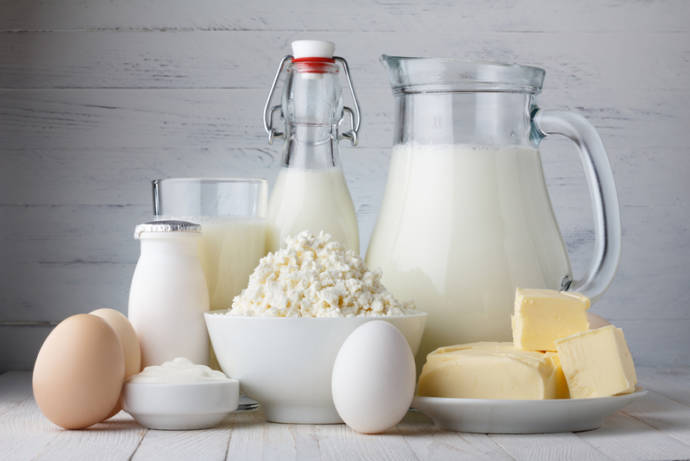
- Egg yolk: Egg yolk contains a good amount of biotin. Eggs should be boiled prior to eating as this will help to inactivate avidin.
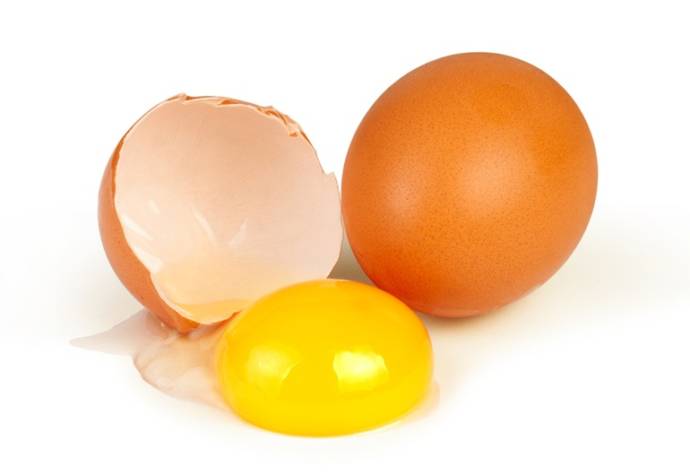
- Sunflower seeds: Sunflowers seeds have a good amount of biotin apart from healthy fatty acids.
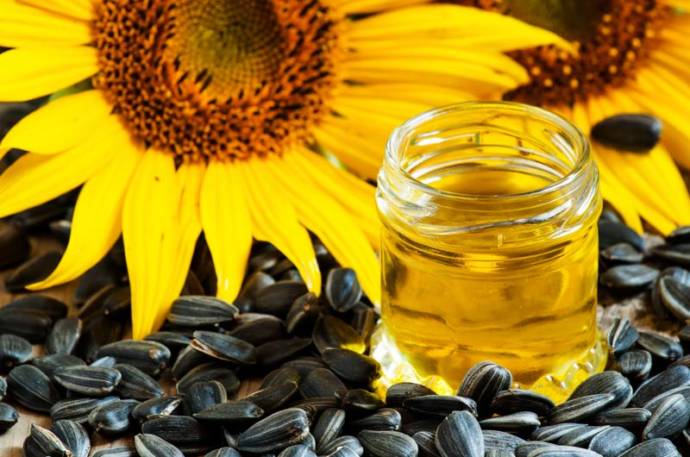
- Almonds: Almonds in its dry form or almond milk provides a sufficient quantity of biotin to the body.
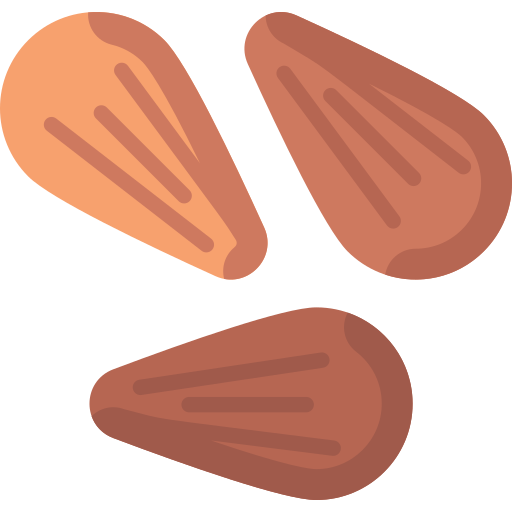
- Banana: Banana is also a good option when it comes to supplementing biotin.

- Beef liver: Cooked beef liver contains a high concentration of biotin. 30 mcg biotin is available in approximately 100 gm of beef liver.
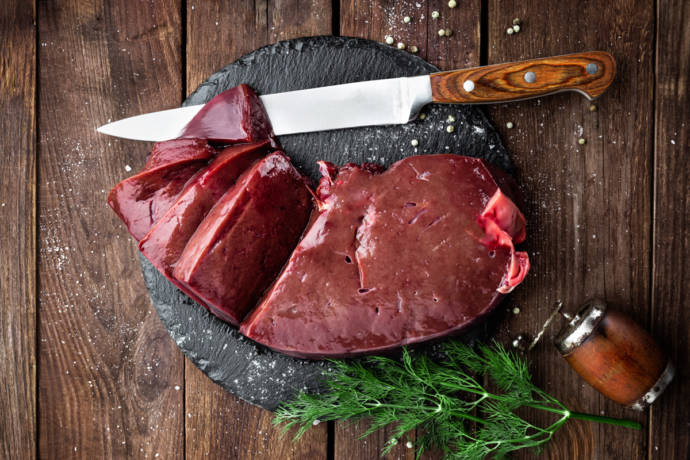
- Miscellaneous: Other biotin-rich foods include cauliflower, oat, salmon, boiled spinach, yeast, wheat germ, mushroom, broccoli, and raspberries.


